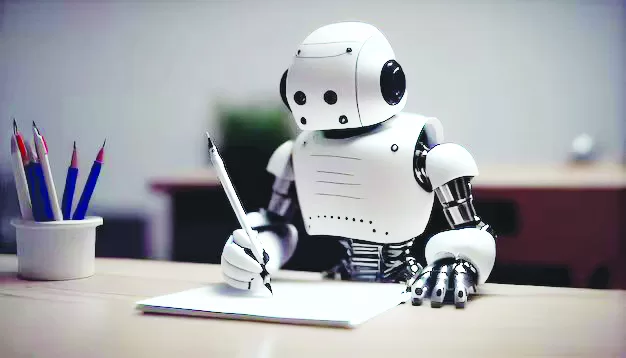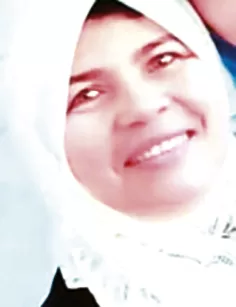By Dr Laila Abdel Aal Alghalban
Did you know that you will enjoy reading new literary masterpieces by Shakespeare, Hemingway, Hahfouz, and dozens of creative heavyweights from various linguistic and cultural backgrounds soon? Yes. They passed away, but their creativity fire is still burning and paying off. They will continue to write poems, plays and novels, thanks to Deep-speare, Deep-way, Deep-fouz and so many Deeps! Moreover, If you are a journalist, stories will definitely be written for you automatically, just a click and the job is instantly done. Artificial intelligence (AI) through machine learning never stops wowing us, even in the most creative things human do, namely literature, music and journalism. AI is to become such arts’ next medium soon. Would it be possible for all of us to pass the Turing test for poetry and writing in general when we become unable to guess whether a poem we are reading, for instance, is written by a human or by a computer? Could AI sweep aside humans in the long run? Or will it be there by humans, sparing them so much time and effort, and offer increasing opportunities of more creative and successful careers?
In everything around us
AI technology is storming us with mind-boggling stories around the clock. Although I am not a technology nerd, but l am always gripped by AI news. I really can’t explain it. AI has changed a lot of things in our lives. Algorithms -computer mathematical formulae – are increasingly used to make everyday decisions about our lives and do what humans cannot do or would take a lot of time and effort to do manually. From simple things like sending an email where natural language processing system helps us check grammar, spelling, and filter spam, to Google search in which AI algorithms scan the web and start crafting personalised ads on products and services we might favor, to voice assistants, driving and streaming services, using your past history to deliver suggestions for what you might want ( to cite only a few). All are AI-powered and use your personal data to suggest further recommendations. This week I came across two mind-blowing stories, at least to me, The first story is about bot or robotic/ computer poetry, while the second one is about the first BBC test for machine-generated journalism on the election day.
How it happens
This is the age of big data; Natural Language Processing analyse and understand human language. Text generators are “trained” on a dataset of millions of web pages, and are able to “ learn” how to generate new texts, abiding by the instructions or parametres of form and content fed to them by programme developers. For example, if the dataset on which the programme is trained is poetry, it will be able to write poems. So, we can technically say: genre of writing or literature in, genre out.
Bot poetry
Poetry is generated through an algorithm that is fed thousands of poems and it learns how to write poems, using particular formulas. Two ambitious projects in computational linguistics shine in this domain. The first one is a joint project between IBM Research Australia and the University of Melbourne and Thomson Reuters. The text generator developed is trained on a dataset of 2,700 sonnets, and uses three models : words , metre and rhyming . Interestingly, it writes four lines of verse, in iambic pentametre. The result was astonishing; the computer manages to fool about 50% of the people who read the poems online, and outperforms human poems in creating rhythms and rhymes.
Missing the heart of poetics
However, the generated poems still lack the necessary feelings that make them readable and relatable to readers. Poetry presents special challenges. Sticking to the form is not the top priority. Poets no longer follow a strict scheme of rhyme and metre. Themes, philosophy and imagination come first; they represent the heart of poetics. Developing a text generator that is capable of creating metaphor and figurative language is currently the main objective of ground-breaking research by AI specialists and professors of English literature at Berkley School of Information, using word vectors which refer to the semantic network of a word which relates it to other words. A similar algorithm is in vogue; it is Hopkins programme which is making a breakthrough in generating poetry with a more vibrant human touch. The computer is given some space to improvise and then the research team correct the improvisation so it fits with each poet’s style. Now let’s put the question again: Could algorithms writing poetry replace poets? The answer is no. Rather, they enhance poets’ talents and help them experience so many light-bulb moments.
Machine-generated journalism
Likewise, the computer collects millions, sometimes billions of articles, numbers and facts, creating a big dataset to generate journalistic stories.”

None of the stories have any quotations in, none of them have any analysis of what happened or what the significance is. It is purely a written version of what has happened based on the data. So that’s quite a big downside in terms of quality of journalism,” said Robert McKenzie, editor of BBC News Labs, commenting on the machine- generated news articles of the BBC coverage of last week’s UK election. An exceptionally accurate and instant report was released on the election day for every constituency, displaying the number of candidates, turnout percentage in comparison to other elections, and the highest and lowest voting groups based on age, gender and occupation. It spares journalists the time and effort they would put on such tedious, boring and time-consuming tasks. Sounds good? And it is evident that human staff will remain with new duties and challenges!
Aha moments ahead
You might not be so happy with the first results of bot poetry or bot journalism. But remember it is still the beginning. Let’s keep going. Definitely, there will have so many aha moments ahead.
By Dr Laila Abdel Aal Alghalban
Professor of linguistics
Faculty of Arts
Kafr el-sheikh University
Email: [email protected]






Discussion about this post